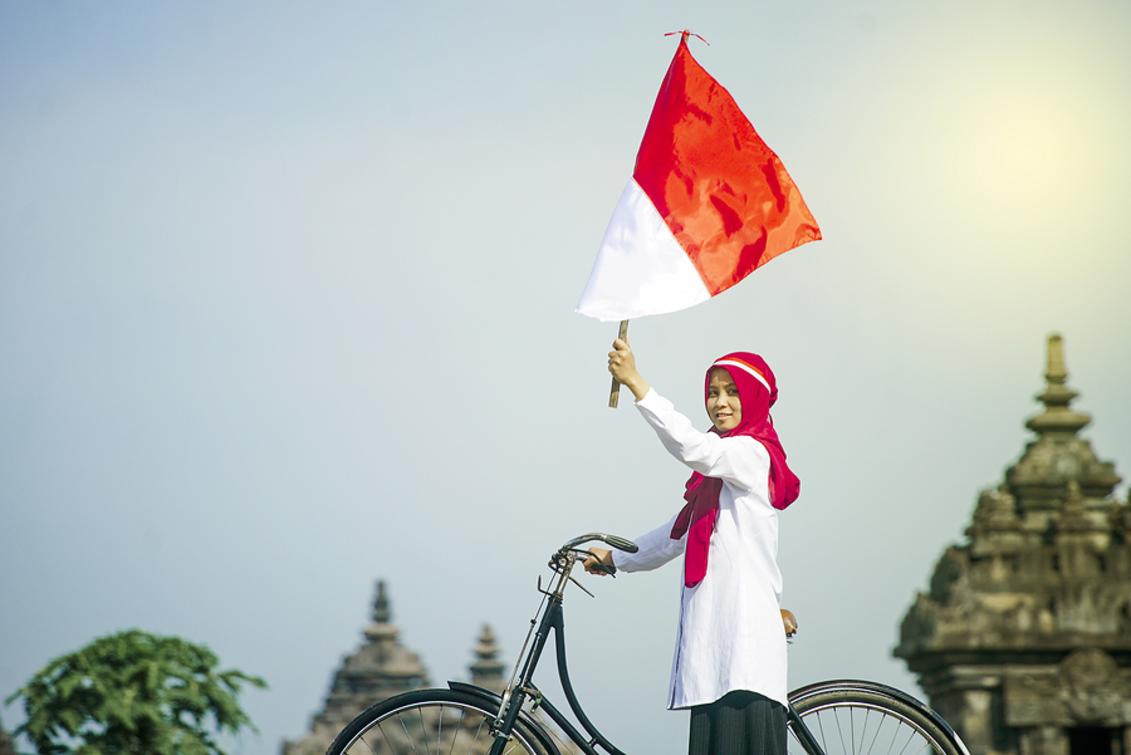Divided Nation: What’s Fueling Indonesia’s Political Polarization
JAKARTA, turkeconom.com – “Divided Nation: What’s Fueling Indonesia’s Political Polarization?” Man, if you’ve scrolled through Indonesian social media lately, you probably know what I’m talking about. One minute you’re laughing at viral cat memes, next you’re staring at heated arguments about politic, religion, and who’s right or wrong. Sometimes I ask myself—how did it get this far?
Where the Divide Began (And, Yep, I Was There…)
I remember during the 2014 and 2019 presidential elections, people (me and my friends included) got so caught up in the “us versus them” mindset. Family group chats would just… explode. Old buddies at war over WhatsApp stickers—it was wild. I honestly made the mistake of engaging without thinking; my quick replies only fanned the flames. Lesson learned: in Indonesia, politic talk is rarely just about policy, it’s personal, emotional, and super sticky.
The Social Media Tornado
Social media is like pouring gasoline onto a tiny spark. When I posted a harmless meme (at least I thought so!) before the last election, it turned into a war zone in the comments section. According to a Kominfo survey in 2022, over 70% of Indonesians get their news from social media. That means, the chance of running into echo chambers? Super high.
I see this play out every day: algorithms show us what we like, so if you side with group A, you’ll just see more of group A’s content. Suddenly, you’re deep in your own bubble, and everyone else looks like the enemy. Been there, done that. These online echo chambers basically make Indonesia feel like a divided nation—even though, in the real world, most folks just want peace and nasi goreng.
Common Polarization Triggers (That I Totally Came Across…)
Let’s be real, political polarization isn’t just a Jakarta thing. But here? Three factors I see everywhere:
- Religion: Politic in Indonesia soaks up religion like a sponge. The 2017 Jakarta Gubernatorial Election was the clearest example: suddenly, faith became part of who you could or couldn’t support. I saw neighbors, usually chill, barely talking after Friday prayers.
- Ethnicity: Sometimes, ethnic issues get dragged into political debates. Back in university, debates about Javanese vs. non-Javanese leadership got pretty intense.
- Fake News: I can’t even count how often my family group shares a wild story—that turns out to be hoax. Once, my uncle argued for a week on Facebook before realizing the post was made up. Ariadne Labs’ research in 2020 said Indonesia’s fake news circulation is among the fastest in Asia. Yikes.
My Hypotheses (And Tough-Learned Tips)
So, what’s really fueling Indonesia’s political split? Here’s what I’ve learned after staying up late scrolling through comment wars and sometimes falling into that spiral myself:
- Lack of Trust: We don’t trust the other side, or even our institutions half the time. Whenever even small news breaks out, everyone jumps to accuse this or that camp. My tip? Always double-check news sources. Don’t panic-share.
- Identity Politics: It’s like supporting a football club but way deeper. Once you get emotionally invested, every attack on your candidate feels personal. I admit, I used to clap back hard, but now I just ask more questions and actually listen. Cool, but being curious instead of combative really works.
- Political Influencers: Ever notice how some “celebrities” on Instagram suddenly become political experts? People latch onto whatever’s trending. These days I follow a mix of voices to stay balanced. If you’re feeling overwhelmed, just mute or unfollow—your mental health matters.
Lessons Learned: How I Surf Through Political Waves
If I could go back, I’d tell my younger self a few things:
- Never fight politic battles in family groups. Trust me—it’s not worth ruining your next Christmas dinner!
- Get out of your filter bubble. This really changed me: I started reading both sides, watching rival YouTube channels, and talking to friends from opposite camps.
- Realize that most Indonesians want unity. It seems cliché, but when I’ve actually sat down for kopi with people of all stripes, the big stuff we care about—like good schools, safe streets, better jobs—is honestly the same.
Indonesia’s Polarization in Numbers
Don’t just take my word for it. A 2023 Indikator Politik survey showed 49% of Indonesians still feel society is divided after every major election year. Another 60% say online debates are nastier than what’s said in real life. That’s a lot of arguments happening behind screens, not face-to-face.
How Do We Heal? (No Magic, Just Honest Struggle)
So, how to move forward? For me, it’s about the little stuff. I make sure to check in with friends across the aisle, literally asking, “Hey, apa kabar, bro?” instead of jumping into debates. I try to talk less, listen more. Yep, I slip up sometimes. But hey, small steps.
On a bigger scale, we need actual honest discussions—more community meetups, school debates, neighborhood forums, you name it. Back in 2020, I joined a digital literacy workshop and, honestly, it helped me spot fake news way faster. Equip yourself and your circle with tools to sniff out hoaxes and check sources.
You Got This! (Seriously…)
No matter how divided Indonesia feels right now, don’t just throw up your hands. Split nations can heal, but you gotta start with yourself. Speak up for unity, keep learning, and never be afraid to ask tough questions. I know I’ll keep trying—maybe we can make real change, one conversation at a time.
If you made it this far, thanks for listening to my rant and real talk. Let me know if you have a wild group chat story, too—misery loves company, right? Anyway, let’s keep Indonesia cool, peaceful, and (mostly) united. Sampai jumpa di artikel selanjutnya!
Unleash Your Curiosity in the Wisdom Nook: Journey Through Politic
Spotlight Feature: “Presidential Powers!”
Ignite Your Imagination – Embark on an Adventure at Our Official Website: angkabet











